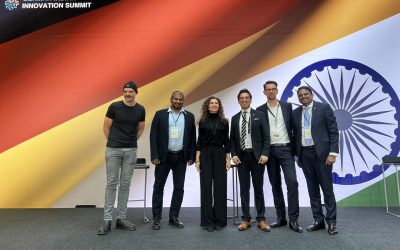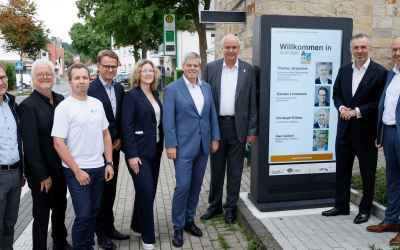The U.S. Department of Commerce’s National Institute of Standards and Technology (NIST) and several partners have launched a new international technical working group that will develop the common architectural principles for smart cities. In consultation with city stakeholders, the group will make a comparative analysis of existing architectural efforts and produce a framework. This document can then be used to bring greater coherence to standardization activities taking place internationally in various standards developing organizations and consortia.
FIWARE was invited to participate in this initiative due to the great relevance it has in becoming the choice of many cities that are looking for open standards, avoiding locked in concrete vendors. Other international partners supporting the initiative are: ANSI, the American National Standards Institute; ETSI, the European Telecommunications Standards Institute; MSIP, the Republic of Korea’s Ministry of Science, ICT and Future Planning; USGBC, the U.S. Green Building Council; and, ENEA, the Italian National Agency for New Technologies, Energy and Sustainable Economic Development.
FIWARE brings the FIWARE NGSI standard API which can work as a pivot point for Interoperability and Portability of smart city applications and services. There are already 89 cities from 19 countries that have taken the step in adopting this standard to export real-time data about what happens in cities. This becomes the fuel for new smart city applications developed by the city or third parties, and a mean for interoperability of vertical smart city solutions. Based on this API, a wide range of other FIWARE Generic Enablers, or alternative enablers, can be integrated to deal with real-time processing, visualization or bigdata analysis of cities’ real-time and historic context information.
The kick-off workshop for the initiative will take place at NIST’s Gaithersburg, Maryland campus, on March 24th-25th, 2016, in conjunction with the NIST Global City Teams Challenge (GCTC) Tech Jam. The initiative expects to draw on the expertise of GCTC project teams that collaborate on city scale applications.
A second workshop will be held, April 14th-15th, 2016 in Rome, Italy, hosted by ENEA. Both workshops will have similar structures with in-depth presentations from experts engaged in activities within the different geographic regions. Interim results will be considered at subsequent workshops in summer 2016. The hope is to produce an initial draft document by September and to finalize it by June of next year.
Participation in the activity is open to anyone. NIST has set up a collaboration website for the project which includes an email list sign-up and a briefing paper providing more information on the project.
Chris Greer, director of NIST’s Smart Grid and Cyber-Physical Systems Program, commented on the fact that, “The growth of the smart cities market is currently hindered by ICT deployments that are customized and not fully interoperable or scalable, as well as by the lack of convergence around architectural design principles and a common language / taxonomy. We want to enable the full spectrum of standards activities to cooperate and harmonize their efforts to enable smart city solutions that meet the needs of modern communities.”
About NIST
As a non-regulatory agency of the U.S. Department of Commerce, NIST promotes U.S. innovation and industrial competitiveness by advancing measurement science, standards and technology in ways that enhance economic security and improve our quality of life. To learn more about NIST, visit www.nist.gov.



